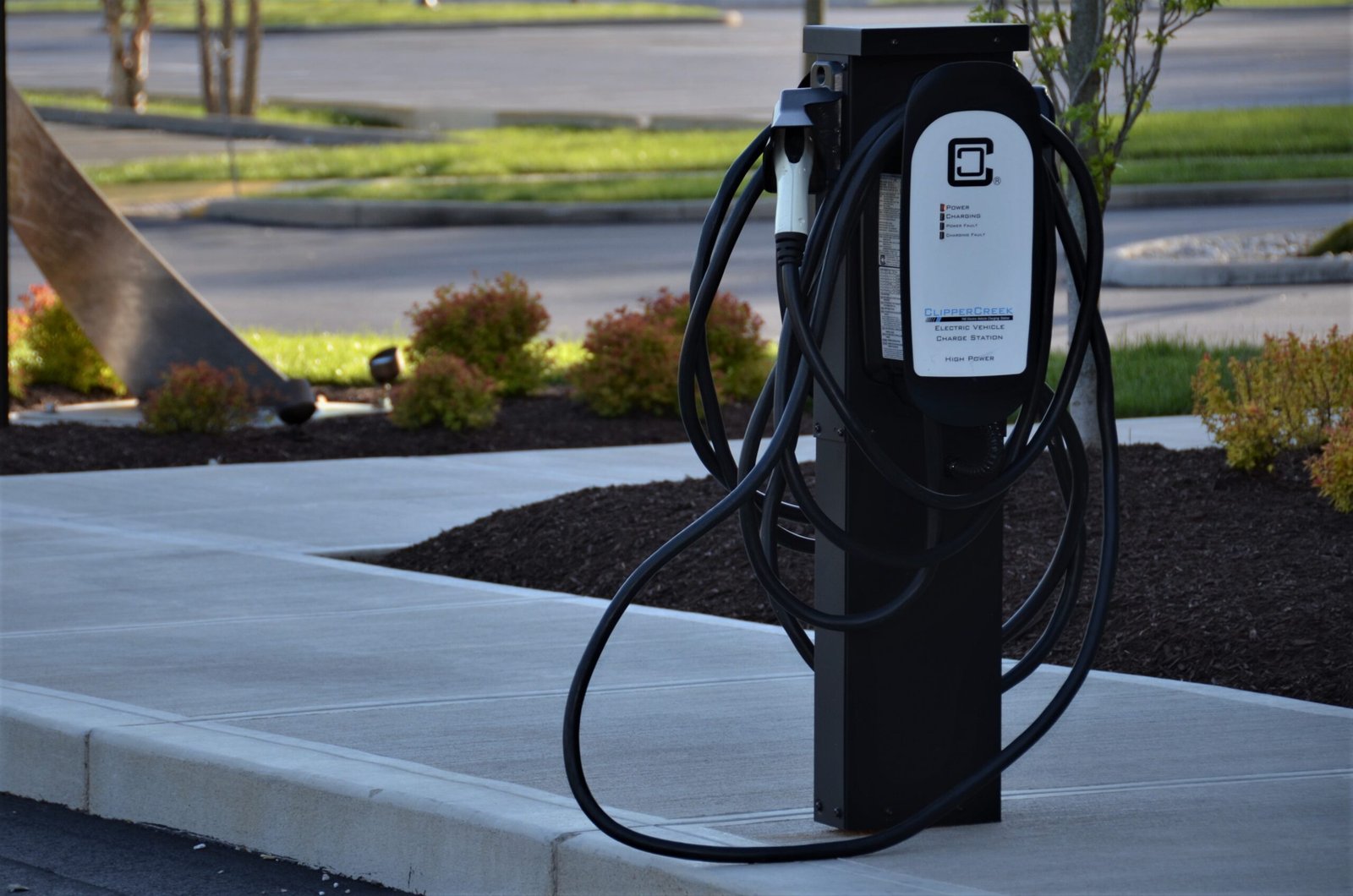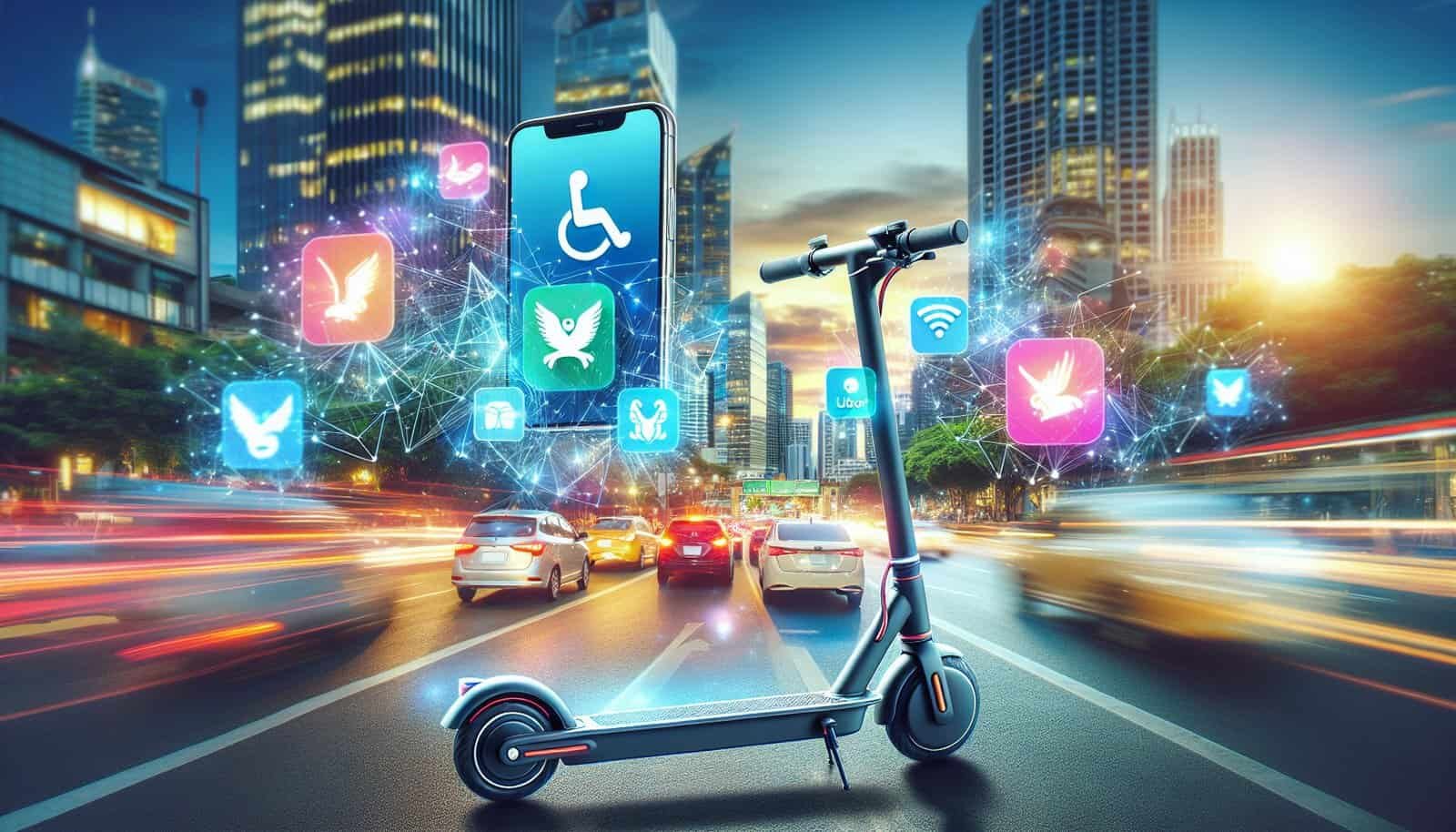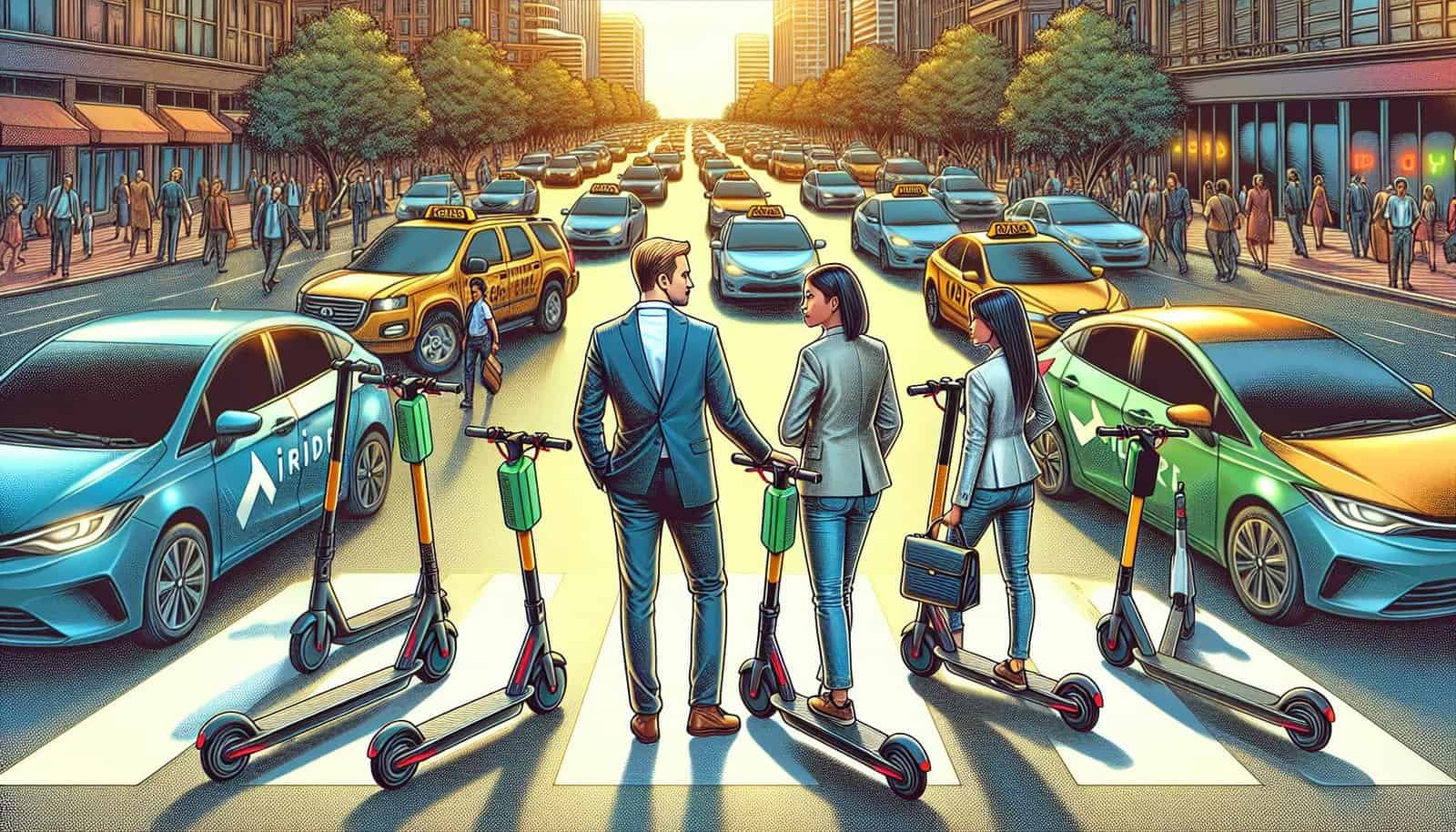Are you looking to make some extra cash by joining the rideshare revolution? Exciting opportunities await, but before you embark on this adventure, one question may be buzzing in your mind: can I use an electric scooter for rideshare services like Uber or Lyft? With the rising popularity of electric scooters as a convenient and eco-friendly mode of transportation, it’s natural to wonder if these sleek machines can be used for ridesharing. In this article, we will explore the possibilities and guidelines surrounding the use of electric scooters in the rideshare industry, providing you with the information you need to make an informed decision and potentially revolutionize your commutes.
Can electric scooters be used for rideshare services?
The popularity of rideshare services
Rideshare services, such as Uber and Lyft, have become increasingly popular in recent years. These platforms offer an affordable and convenient alternative to traditional taxis, allowing people to request a ride from their smartphone and be picked up by a nearby driver. The flexibility and accessibility of rideshare services have attracted a wide range of users, from commuters and travelers to those who simply need a reliable way to get around town.
The rise of electric scooters as an alternative mode of transportation
At the same time, electric scooters have been gaining traction as a popular mode of transportation in many cities around the world. These scooters are powered by rechargeable batteries and offer a cost-effective and eco-friendly way to travel short distances. With their compact size and ease of use, electric scooters have become a convenient option for urban dwellers, especially for those looking to avoid the congestion and pollution associated with traditional cars.
Are electric scooters allowed for rideshare services?
The question arises: can electric scooters be used for rideshare services like Uber or Lyft? The answer, as with many things, depends on the specific regulations and policies in place in different cities and regions. Some cities, such as San Francisco and Los Angeles, have allowed electric scooters to be used for rideshare services, while others have placed restrictions on their use. It is important for prospective rideshare scooter drivers to familiarize themselves with the rules and guidelines set forth by their local authorities in order to ensure compliance.
Benefits of using electric scooters for rideshare services
Using electric scooters for rideshare services can offer several benefits not only for the drivers but also for the riders and the environment. One of the key advantages is the reduced carbon footprint, as electric scooters produce zero emissions compared to traditional gasoline-powered vehicles. This contributes to cleaner air and a healthier environment for everyone.
Another benefit is the affordability of electric scooters. With lower maintenance and fuel costs compared to cars, rideshare scooter drivers can potentially earn a higher income while providing a cost-effective transportation option for riders. Additionally, the compact size and maneuverability of electric scooters allow for easier navigation through traffic and quicker pickup and drop-off times, making it a convenient choice for riders who are looking for a speedy and efficient mode of transportation.
Regulations and policies regarding the use of electric scooters for rideshare services
Local laws and regulations
Each city or region may have its own specific laws and regulations regarding the use of electric scooters for rideshare services. These regulations often cover aspects such as licensing requirements, speed limits, parking restrictions, and helmet usage. It is crucial for rideshare scooter drivers to familiarize themselves with the local laws and ensure compliance to avoid any legal issues or penalties.
Uber and Lyft policies
Uber and Lyft, as major players in the rideshare industry, also have their own individual policies and guidelines regarding the use of electric scooters. These policies may vary depending on the city or region, and it is important for rideshare scooter drivers to carefully review and adhere to these policies. Violations of these company policies may result in suspension or termination of the driver’s account.
Safety requirements for electric scooters
Safety is a top priority for rideshare companies and local authorities alike. In order to ensure the safety of both the drivers and the riders, there are certain safety requirements that electric scooters must meet. These requirements may include features such as lights, reflectors, horn or bell, and functional brakes. Rideshare scooter drivers should ensure that their electric scooters are equipped with these safety features and properly maintained to prevent accidents or malfunctions.
Insurance considerations
Insurance is another important aspect to consider when using electric scooters for rideshare services. While traditional rideshare vehicles are typically covered by commercial auto insurance, the insurance coverage for electric scooters may vary. Rideshare scooter drivers should inquire with their insurance providers to determine if their current policies cover their scooter use or if additional coverage is required. It is crucial to have adequate insurance coverage to protect both the driver and the rider in the event of an accident or injury.

Requirements for using an electric scooter for rideshare services
Age and license requirements
Just like with traditional rideshare services, there are age and license requirements for using electric scooters for rideshare purposes. The exact age requirement may vary depending on the city or region, but most jurisdictions require riders to be at least 18 years old. As for the license requirement, rideshare scooter drivers must possess a valid driver’s license to legally operate the scooter on public roads.
Scooter specifications
Electric scooters used for rideshare services must meet certain specifications to ensure safety and compatibility with the platforms. These specifications may include factors such as maximum speed, weight limit, and size restrictions. Rideshare scooter drivers should ensure that their electric scooters meet the required specifications set by the rideshare company or local regulations.
Battery life and range
Battery life and range are important considerations for rideshare scooter drivers. In order to provide a reliable service, rideshare scooter drivers should have an electric scooter with sufficient battery life and range to cater to the needs of the riders. This would ensure that the scooter does not run out of charge during a ride, causing inconvenience for both the driver and the rider.
Charging infrastructure
One of the challenges associated with using electric scooters for rideshare services is the need for a reliable charging infrastructure. Unlike traditional rideshare vehicles that can be refueled at gas stations, electric scooters need access to charging stations or outlets to recharge their batteries. Rideshare scooter drivers should be aware of the availability and location of charging stations in their area to effectively manage their scooter’s charging needs.
Maintenance and upkeep
Regular maintenance and upkeep of electric scooters are crucial to ensure their safety and longevity. Rideshare scooter drivers should familiarize themselves with the manufacturer’s recommended maintenance schedule and perform routine inspections and repairs as necessary. This includes checking tire pressure, brake functionality, lights, and other essential components. By properly maintaining their electric scooters, rideshare scooter drivers can provide a reliable and safe transportation option for their riders.
Availability of electric scooters for rideshare services
Cities and regions where electric scooters are allowed
The availability of electric scooters for rideshare services varies from city to city and region to region. While some cities have embraced electric scooters as a viable mode of transportation and allowed their use for rideshare services, others have implemented restrictions or even banned their use altogether. Rideshare scooter drivers should research the specific regulations and policies of their city or region to determine if electric scooters are allowed for rideshare purposes.
Partnerships between rideshare companies and electric scooter providers
To meet the demand for electric scooter rideshare services, many rideshare companies have formed partnerships with electric scooter providers. These partnerships allow rideshare scooter drivers to access electric scooters through the rideshare company’s platform, making it easier for them to provide rideshare services using electric scooters. This collaboration benefits both the rideshare companies and the electric scooter providers by offering a wider range of transportation options to their customers.
Competition among electric scooter brands
As electric scooters become more popular for rideshare services, competition among electric scooter brands is on the rise. Various companies are vying to provide the most efficient, reliable, and user-friendly electric scooters for rideshare use. This competition has led to advancements in electric scooter technology, resulting in scooters that offer longer battery life, higher speeds, improved safety features, and enhanced rider experience. Rideshare scooter drivers can take advantage of this competition by carefully selecting the best electric scooter for their rideshare business.

Pros and cons of using electric scooters for rideshare services
Advantages of electric scooters
Using electric scooters for rideshare services offers several advantages. First and foremost, electric scooters are environmentally friendly, producing zero emissions and reducing carbon footprint compared to traditional gasoline-powered vehicles. This appeals to eco-conscious riders and contributes to a greener and more sustainable future.
Electric scooters are also cost-effective for both the rideshare scooter drivers and the riders. With lower maintenance and fuel costs, rideshare scooter drivers can potentially earn a higher income while offering affordable transportation options to riders. Additionally, electric scooters are compact and agile, allowing for quicker pickup and drop-off times, reduced traffic congestion, and easier navigation in urban areas.
Disadvantages of electric scooters
Despite their advantages, using electric scooters for rideshare services also comes with certain disadvantages. One major challenge is the limited range and battery life of electric scooters, which may require frequent recharging and potentially limit the number of rides a rideshare scooter driver can provide in a single day. Additionally, electric scooters may not be suitable for riders with specific accessibility needs or those traveling with large items or multiple passengers.
Another disadvantage is the potential lack of charging infrastructure in certain areas. If charging stations are not readily available, rideshare scooter drivers may face difficulties in finding a suitable location to recharge their scooter’s batteries, causing delays and limited availability of the service.
Cost-effectiveness and profitability
The cost-effectiveness and profitability of using electric scooters for rideshare services depend on various factors, including the local market, demand for rideshare services, availability of charging infrastructure, and competition from other rideshare providers. Electric scooters can offer a more cost-effective option for rideshare scooter drivers compared to traditional rideshare vehicles, enabling them to potentially earn higher profits due to lower maintenance and fuel costs. However, it is essential for rideshare scooter drivers to carefully analyze the local market and evaluate the potential demand before investing in electric scooters for their rideshare business.
Challenges and limitations of using electric scooters for rideshare services
Infrastructure limitations
The use of electric scooters for rideshare services can be limited by infrastructure challenges. This includes the availability and accessibility of charging stations, as well as the maintenance and upkeep of these stations. In areas where charging infrastructure is scarce or poorly maintained, rideshare scooter drivers may encounter difficulties in recharging their scooters, causing disruption to their service.
Additionally, the lack of designated parking spaces for electric scooters can lead to cluttered sidewalks and parking violations, which can pose challenges for both the rideshare scooter drivers and pedestrians.
Weather conditions
Weather conditions can also pose limitations to the use of electric scooters for rideshare services. Electric scooters may not be suitable for extreme weather conditions, such as heavy rain, snow, or high winds. Riding an electric scooter in adverse weather conditions can be dangerous and may increase the risk of accidents or injuries. Rideshare scooter drivers should be aware of weather forecasts and take necessary precautions to ensure the safety of themselves and their riders.
Rider and driver safety concerns
Safety is a critical concern when using electric scooters for rideshare services. Electric scooters, just like any other mode of transportation, come with their own set of risks and potential hazards. It is important for both the rideshare scooter drivers and the riders to follow all safety guidelines and regulations, such as wearing helmets, obeying traffic laws, and practicing defensive driving.
Rideshare scooter drivers should also consider the safety of their riders when providing rideshare services. This includes ensuring the scooter is properly maintained, conducting regular safety inspections, and providing the necessary safety equipment, such as helmets and reflective gear.
Accessibility considerations
Accessibility is another limitation when it comes to using electric scooters for rideshare services. Not all riders may be able to use electric scooters due to physical limitations or disabilities. For example, individuals with mobility impairments or those requiring wheelchair-accessible vehicles may not be able to utilize electric scooters for rideshare purposes. Rideshare scooter drivers should be aware of these accessibility considerations and ensure that alternative transportation options are available for riders with specific needs.

Tips for using an electric scooter for rideshare services
Choosing the right electric scooter
When using electric scooters for rideshare services, it is important to choose the right scooter that meets the requirements of the rideshare company and local regulations. Consider factors such as battery life, range, speed, weight limit, and safety features. Research different electric scooter models and read reviews from other rideshare scooter drivers to determine the best option for your rideshare business.
Understanding local regulations
Familiarize yourself with the local laws and regulations regarding the use of electric scooters for rideshare services. Understand the age and license requirements, helmet usage, speed limits, and parking restrictions. By following the rules and regulations, you can ensure compliance and avoid any legal issues or penalties.
Maintaining safety while riding
Safety should always be a priority when using electric scooters for rideshare services. Wear a helmet and any other necessary safety gear, such as reflective clothing or gloves. Obey traffic laws, signal your intentions, and ride defensively. Regularly inspect your electric scooter for any maintenance or safety issues and address them promptly.
Maximizing earnings as a rideshare scooter driver
To maximize your earnings as a rideshare scooter driver, consider factors such as peak hours, demand patterns, and rider preferences in your area. Familiarize yourself with the most popular routes and areas with high demand, and target these locations during peak hours. Offer exceptional customer service by providing a clean and well-maintained scooter and a positive riding experience.
Comparison between electric scooters and other rideshare vehicles
Fuel efficiency and environmental impact
Compared to traditional rideshare vehicles, electric scooters are highly fuel-efficient and have a lower environmental impact. Electric scooters produce zero emissions, making them a more eco-friendly option for rideshare services. In contrast, traditional rideshare vehicles consume fossil fuels, contributing to air pollution and greenhouse gas emissions.
Cost of ownership and maintenance
Electric scooters have a lower cost of ownership and maintenance compared to traditional rideshare vehicles. Electric scooters require minimal maintenance, with no need for oil changes or complex engine repairs. The cost of recharging the scooter’s battery is also significantly lower than the cost of refueling a traditional vehicle. This makes electric scooters a more cost-effective option for rideshare scooter drivers, allowing them to potentially earn higher profits.
Ride comfort and passenger experience
Electric scooters may offer a different ride comfort and passenger experience compared to traditional rideshare vehicles. Scooters have a more open-air design, exposing riders to the elements and potential weather conditions. The speed and maneuverability of electric scooters may also result in a different ride sensation compared to a smooth and controlled ride in a traditional vehicle. Riders should be prepared for these differences and consider their comfort preferences when choosing a rideshare service.
Parking and maneuverability
One of the key advantages of using electric scooters for rideshare services is their parking and maneuverability capabilities. Electric scooters can be easily parked in tight spaces and have the advantage of avoiding parking fees or restrictions in certain areas. Their compact size allows for quick and agile navigation through traffic, reducing travel time and congestion. This makes electric scooters a convenient option for riders who are looking for hassle-free parking and efficient transportation in urban areas.

Future prospects of electric scooters in rideshare services
Trends and advancements in electric scooter technology
The future of electric scooters in rideshare services looks promising, as advancements in technology continue to improve their performance, range, and safety features. Electric scooter manufacturers are constantly innovating and investing in research and development to make their scooters more efficient, durable, and user-friendly. This includes improvements in battery technology, motor performance, navigation systems, and connectivity features.
Integration of electric scooters into existing rideshare platforms
As electric scooters gain popularity as a mode of transportation, rideshare companies are increasingly integrating them into their existing platforms. This integration allows riders to request electric scooter rides through the rideshare company’s app, similar to how they would request a traditional rideshare vehicle. The seamless integration of electric scooters into rideshare platforms expands the transportation options available to riders and increases the accessibility and convenience of electric scooters for rideshare services.
Market potential and growth
The market potential for electric scooters in rideshare services is substantial, as more cities and regions embrace sustainable transportation solutions. The demand for efficient, cost-effective, and eco-friendly modes of transportation continues to grow, and electric scooters provide a viable option to meet this demand. As electric scooter technology continues to improve and cities invest in better infrastructure and regulations, the market for electric scooters in rideshare services is expected to experience significant growth in the coming years.
Conclusion
In conclusion, electric scooters have the potential to be used for rideshare services like Uber or Lyft, depending on the specific regulations and policies in each city or region. The use of electric scooters for rideshare services offers several benefits, including reduced carbon footprint, cost-effectiveness, and convenience. However, there are also challenges and limitations to consider, such as infrastructure limitations and weather conditions.
Rideshare scooter drivers should familiarize themselves with the local laws and regulations, as well as the policies of rideshare companies, to ensure compliance and maximize their chances of success. With the right electric scooter, proper maintenance, and a focus on safety, rideshare scooter drivers can provide a reliable and sustainable transportation option for their riders.
The future prospects of electric scooters in rideshare services are promising, with advancements in technology and integration into existing rideshare platforms. As the demand for cleaner and more efficient transportation solutions continues to grow, electric scooters are poised to play a significant role in the rideshare industry, offering a greener and more sustainable mode of transportation for urban dwellers.


